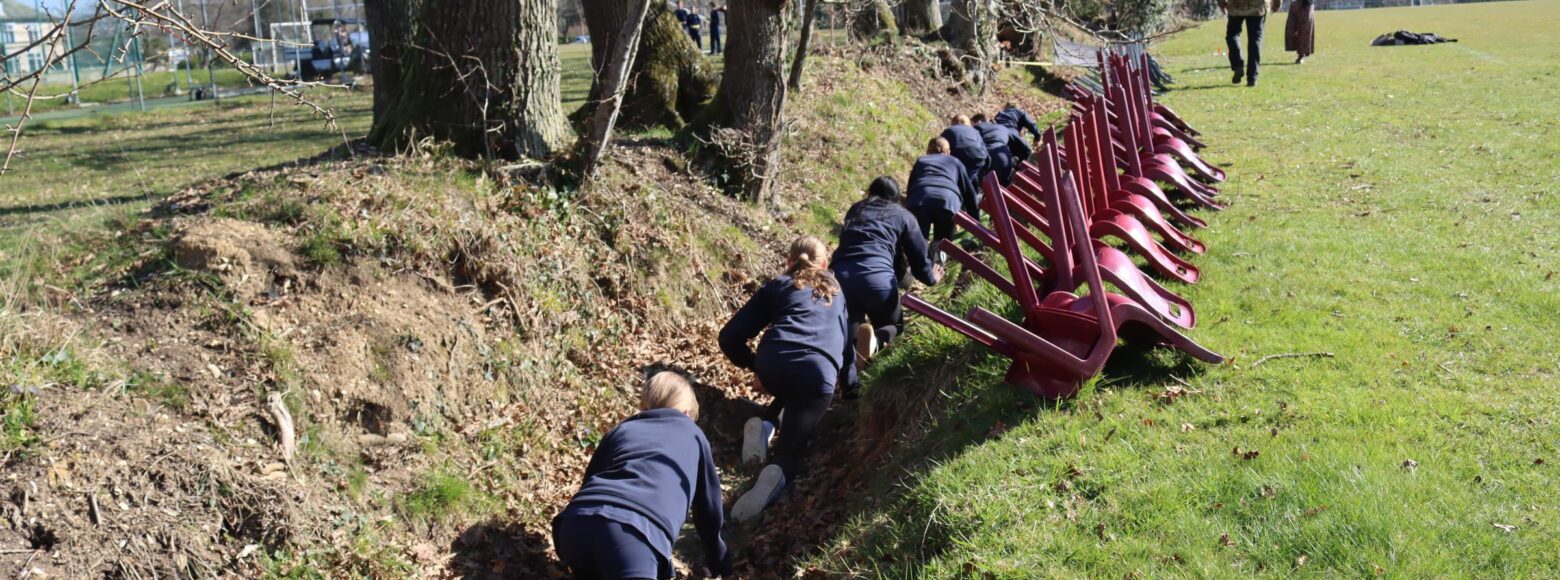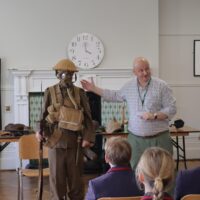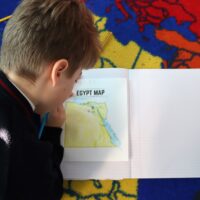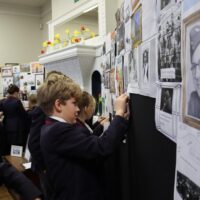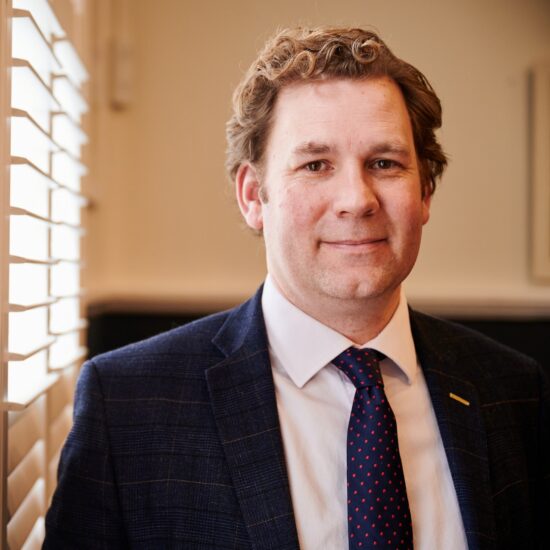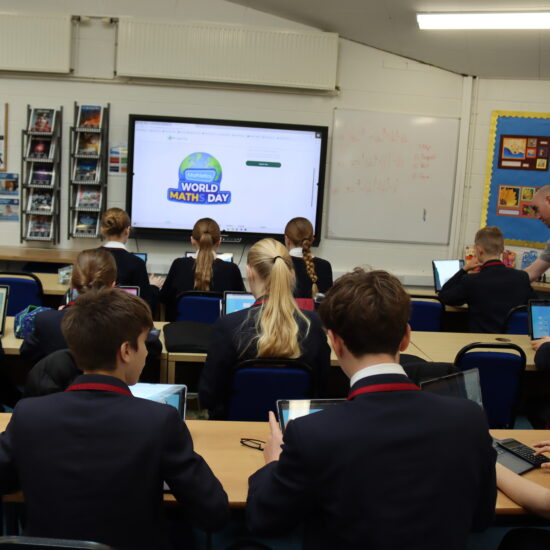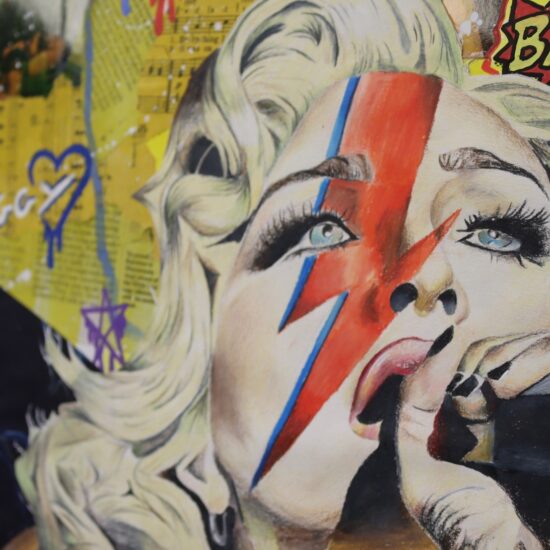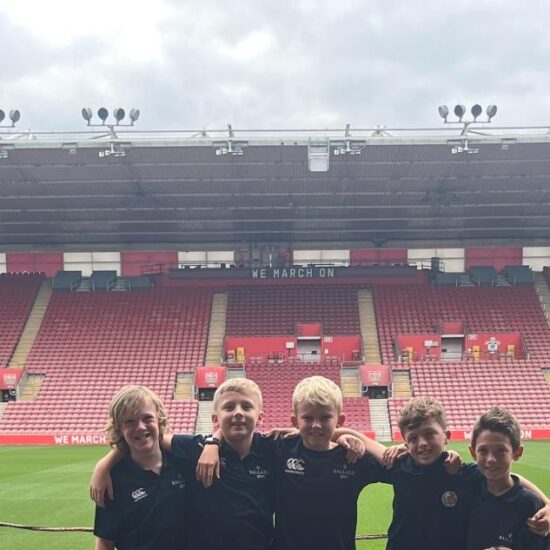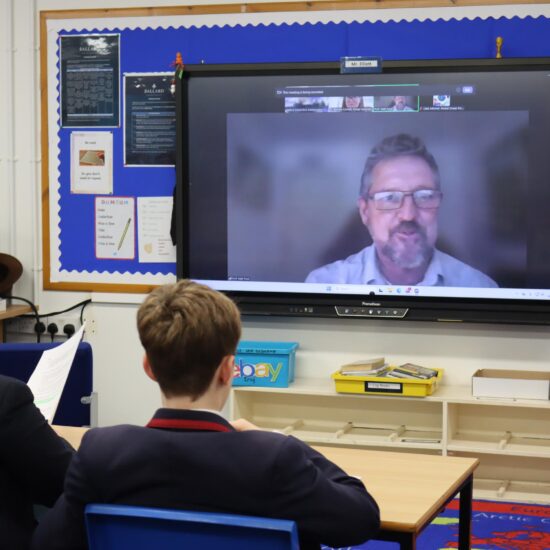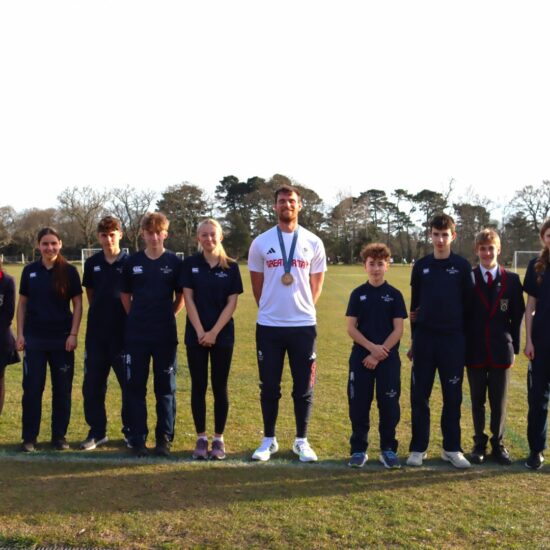History
“Those who cannot learn from history are doomed to repeat it.”
– George Santayana
History at Ballard helps our pupils think, to order their thoughts and develop critical arguments. Wherever possible, our topics are enhanced by hands-on experiences through trips, acting, role plays and activities.
The study of History is hugely rewarding because things are not always as they appear at first glance. Awkward questions need to be asked, and sources of information are examined and questioned. Our pupils are encouraged to form arguments based on interpreting, analysing and evaluating sources; these skills are valuable in many other areas of the curriculum.
History is studied throughout the Key Stages by all pupils and is a popular subject at GCSE. Ballard’s History department uses an array of teaching styles encompassing group work, debate, role play, craft, script and story-telling. The teaching is also enhanced by popular trips, both day and residential.
As a department, our aim is to inspire and encourage excitement and curiosity in the pupils. We encourage pupils to work hard and aim high; providing them with a wide-range of subject material and expertise. We aim to provide lively and engaging lessons.
UPPER PREP AND SENIOR:
At Ballard, in Upper Prep and Senior, we hope that the study of history will enable pupils to gain a clear and coherent understanding of Britain’s past and that of the wider world at the same time as developing key disciplinary skills associated with the study of history that are transferable across the curriculum and into life beyond school.
Studying topics such as the causation and impact of World Wars, the rise of dictatorships, the Holocaust and slavery will allow pupils to learn from the worst of humanity whilst hopefully developing empathy for those who had to struggle through these times.
By studying the medieval world, empire and the struggle for women’s suffrage, pupils will develop a sense of their own historical identity and core British values such as democracy and multiculturalism.
Pupils will develop important skills such as critical thinking, evaluation of evidence and be able to reach independent, substantiated judgments about the past whilst having the confidence to challenge previous interpretations.
With this, pupils will be better prepared to distinguish the truth from “fake news” and be more critical of information read on social media. Regular opportunities for extended writing will help pupils to develop their literacy.
They will grapple with a range of key historical concepts such as: causes and consequence, change and continuity, significance and using evidence and interpretations.
All pupils should develop confidence in framing and asking perceptive questions about the past and be inspired to find out more for themselves. They should appreciate that History is not a dead subject as interpretations of the past are always changing.
Pre-Prep
At Ballard, the children are encouraged to think independently to pose and answer questions to develop their own learning and inspire curiosity and interest about the world and the past.
Through teaching topics and studying the lives of significant individuals, we ensure that the children have an awareness of the past and present, they have some understanding about chronology and timelines, and they can identify differences and similarities between past and present.
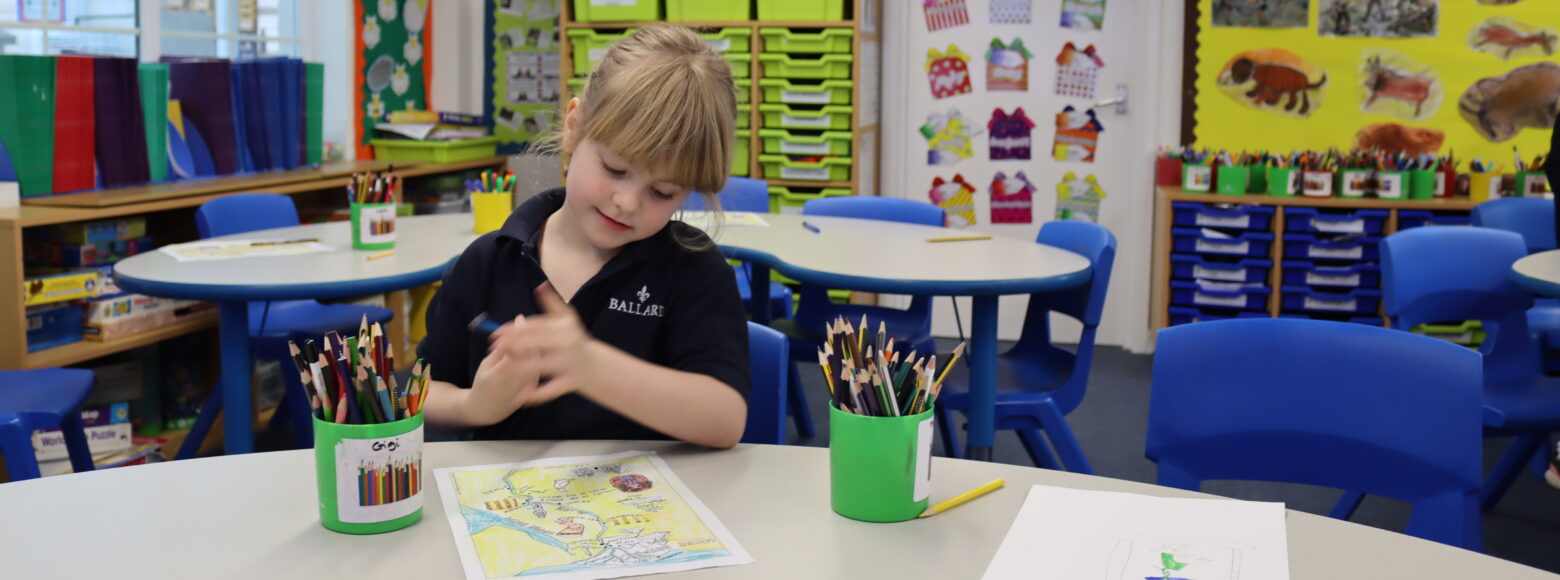
Lower Prep
In Lower Prep, History is taught in topics and with cross-curricular support. We cover a huge range of topics in History from the Classical World to the early Twentieth Century. The children love the variety and creativity involved in Lower Prep History.
The curriculum is truly global in scope and pupils enjoy finding out about not only British history but that of Egypt, Europe, India, and West Africa… Year 3 travel to the stone age making realistic clay models of stone henge, year 4 experience a day in the life of a child during WWII in Beaulieu and year 5 go back in time to the Ancient Greeks, where they delve into ‘The Odyssey’ by Gillian Cross – a reimagining of Homer’s epic story.
History within Lower Prep is brought to life through many different experiences outside of the classroom like the ones listed above, another example is where year three research, design and make Roman Shields then practice Roman Army Drills as a whole year group with the shields they have crafted. This not only develops their knowledge of significant historical topics but also develops their key history skills including; chronological ordering, critical thinking, communication, presenting and organising.
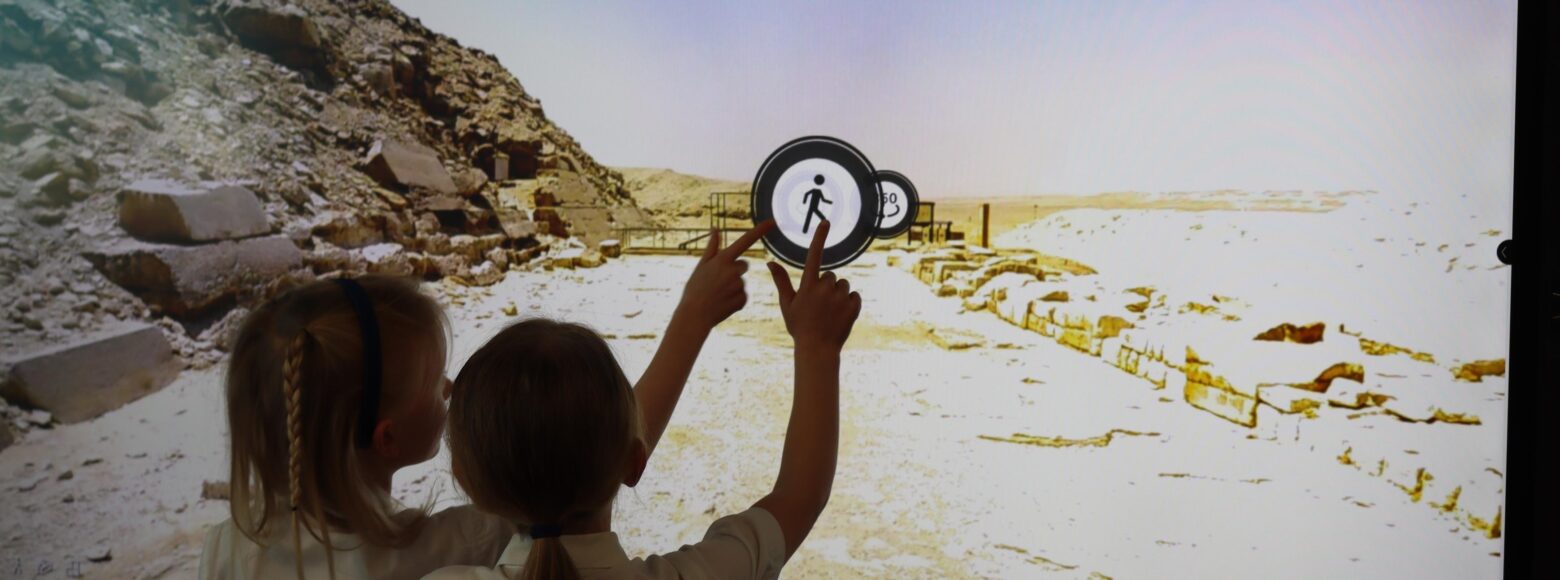
Upper Prep
ears 6 – 8 study History from the Anglo-Saxons to the Victorians. By the time they are ready to move to the Senior School they will have a good understanding of key events in this period. Pupils study a range of topics based around a key inquiry question. Highlights include:
- Why was William able to win the Battle of Hastings?
- Did the Normans really bring a truckload of trouble to England?
- Could Medieval Monarchs really do as they pleased?
- Did Henry VIII really break from Rome for Love?
- Did Elizabeth I rule over a ‘golden age’?
- How integrated were black people in Tudor England?
- Was the Enlightenment the main cause of World Revolutions?
- How far did the Industrial Revolution change England?
- How should we remember slavery?
Different learning styles are explored, and pupils learn how to analyse sources and how to write both narrative and analytical essays. Again, creativity is encouraged, and pupils’ input is rewarded.
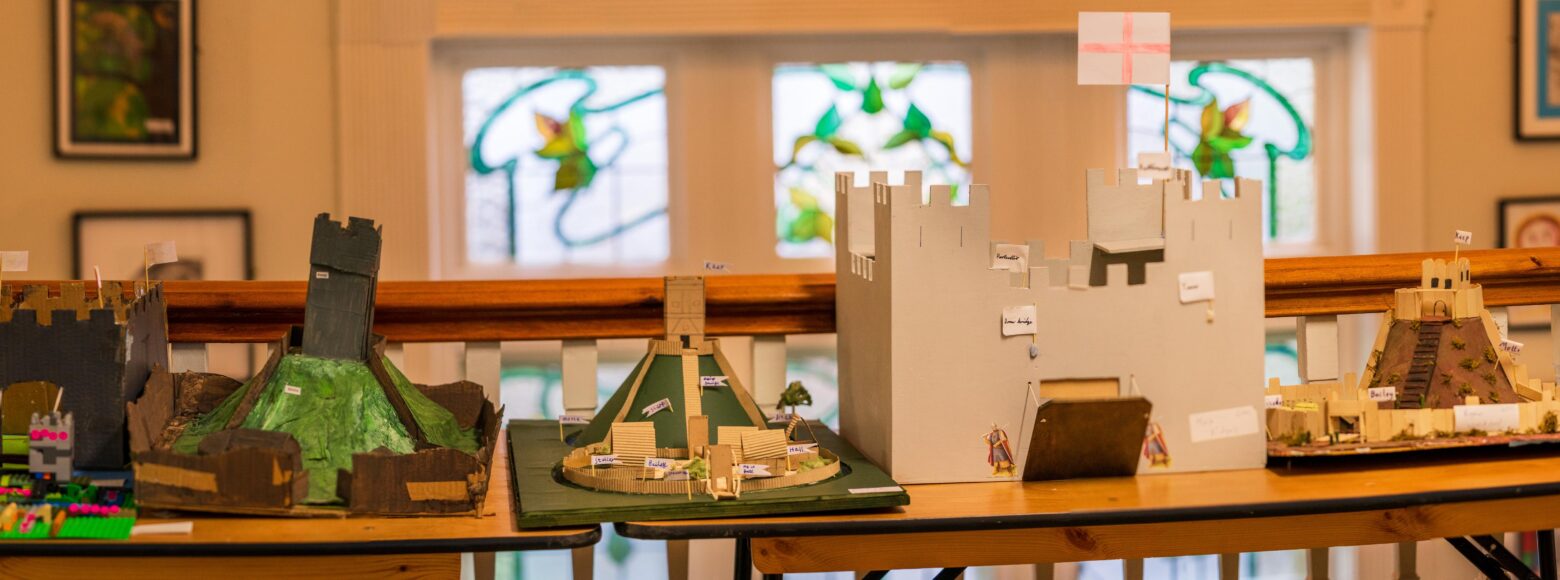
Senior
The curriculum offered in Year 9 is specifically designed to lead directly to the GCSE History course.
During Year 9 pupils will continue to develop and hone skills learnt in Years 7 and 8 whilst grappling with more sensitive subject matter such as the Holocaust. Pupils will continue to explore the topic of conflict and protest through the study of the Suffragettes, allowing them to embed their understanding from Years 6, 7 and 8.
Year 9 will visit the SeaCity Museum in Southampton to support their study of the Titanic.
Year 9 also benefits from our exciting residential trip to the Battlefields of Ypres, Belgium to complement their study of the First World War.
For those doing the GCSE, we follow Edexcel’s Pearson GCSE History (9-1). This allows pupils to study the following:
A British Thematic Study and associated Historic Environment (Paper 1):
Crime and Punishment in Britain, c1000-present and Whitechapel, c1870-c1900: crime, policing and the inner city.
A British Depth Study (Paper 2):
Early Elizabethan England, 1558-1588.
A Period Study (Paper 2):
Superpower Relations and the Cold War, 1941-1991.
A Modern Depth Study (Paper 3):
Weimar and Nazi Germany, 1918-1939.
As a department, we hope to complement the GCSE course with a variety of trips including: a day trip to London for a historic tour of Whitechapel and a trip to Christchurch to explore the impact of the periods studied on a local town.
